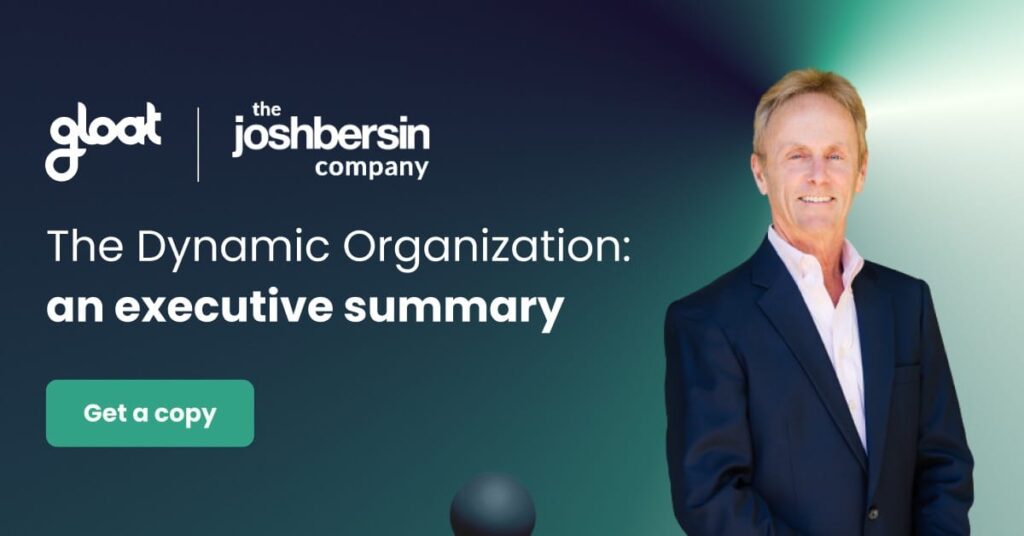Navigating a dynamic skills transformation with The Josh Bersin Company & Novartis
Uncover the strategies and tools Novartis used to transform into a dynamic skills-based organization
Following our Dynamic Organization research, The Josh Bersin Company sits down with Global Head of Talent Markus Graf to explore Novartis’s skills transformation and spotlight best practices for leaders looking to follow in their footsteps.
After unveiling our Dynamic Organization research last year, The Josh Bersin Company is back to spotlight companies that have implemented this top-performing work approach—starting with Novartis. Global Head of Talent Markus Graf joined Josh Bersin and SVP of Research Kathi Enderes to break down how the leading pharmaceutical company transformed into a skills meritocracy.
Reflecting on Novartis’s skills transformation, Graf is quick to discuss how technology helps drive their agenda forward. “Culture and technology reinforce each other. You can’t match talent to opportunities at scale without technology. For us, it was very clear that we wanted to bring this idea of an ‘unbossed’ culture to life and that’s where a talent marketplace really helps.”
Enderes underscores the pivotal role that action platforms like talent marketplaces play in helping companies embrace more dynamic ways of working. “Platforms like Gloat’s talent marketplace that really understand people’s skills and then match them to the work that needs to be done in a modular way are the future of work and the future of the Dynamic Organization,” she concludes.
Adding to the discussion, Bersin breaks down why businesses must embrace new ways of working that are powered by new technologies. Namely, he points to the profound levels of change we’ve experienced in recent years, noting, “If you think about the way work operates today and bring yourself back in time to 10 or 15 years ago, it’s so different. Not only as an individual with the pandemic and Zoom and everything but also as a workforce. Business models have drastically changed.”

Explore key findings from the Dynamic Organization research
Dynamic Organizations like Novartis reap an array of game-changing benefits, including a greater likelihood of exceeding financial targets, more innovation, and enhanced productivity. Yet only 7% of companies have the systems in place to achieve these kinds of results. Download our executive summary of The Dynamic Organization report to learn what it takes to embrace this winning workforce strategy.
‣ Top takeaways
“Each of our 5 big bets is enabled through skills. So the skills operating center as we call it, is really front and center. So for us from a cultural standpoint, as we really want to unlock the potential of our people, Gloat’s talent marketplace was really critical because we could unlock the power of people at scale so that we match talent to opportunities.”
“At the heart of these dynamic organizations is a shift in talent models where you are thinking less about jobs and roles and more about people and skills. In the Industrial Age, it was about slotting people into jobs in the organizational hierarchy. But in this new way of working, it’s much more about what everyone brings and how they bring their unique skills to the company.”
“The access to data that we have now is so much better. With the approach that we have now, in two months we get more quality data about our people than we did in four years with the former approach, so that’s a massive step forward and it also helps with strategic workforce planning. Because if you only have a list of people with their jobs, that may not give you enough insights to understand what skills they have and the skills that they want to develop. So we have much better insights into our people than ever before.”
“Culture for us is very important. If you want to build a culture that inspires careers and unbosses people, that also means that people are empowered to explore different parts of the organization to break down the silos. When we looked into people who had a successful assignment through our talent marketplace, afterward, they have a 132% higher likelihood to move into another part of the organization permanently.”




